In recent years, online banking has revolutionised how consumers and businesses manage their finances. With just a few clicks, people can transfer money, pay bills, and monitor their accounts from the comfort of their homes. However, this convenience comes with its share of risks. The same ease that benefits users also attracts cybercriminals eager to exploit vulnerabilities.
As more banking activities take place online, thieves have become increasingly sophisticated in their methods. Phishing scams, malware, and hacking attempts are rampant, making it essential for individuals to stay vigilant. One of the most effective ways to protect your bank account is to practice safe web browsing habits.
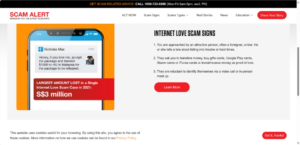
Start by ensuring that your internet connection is secure; avoid using public Wi-Fi networks when accessing sensitive information. Look for HTTPS in the website’s URL and confirm that you are on the official banking site before entering any personal details. Regularly updating passwords and enabling two-factor authentication can further shield your accounts from breaches.
Ultimately, while online banking offers incredible convenience, being proactive about online security is crucial in safeguarding your financial information against potential threats.
Browser Security Tips
Navigating the online world requires a keen sense of security, especially when it comes to links. It’s crucial to avoid clicking on suspicious links found in emails, tweets, social media posts, or even enticing online advertisements. Cybercriminals often disguise malicious URLs under the guise of legitimate ones, leading unsuspecting users to harmful websites.
They can use such deceptive tactics to steal personal information or install malware on your device without your knowledge. To enhance your safety while browsing, consider typing web addresses directly into your browser instead of relying on hyperlinks. This simple practice significantly reduces the risk of landing on potentially dangerous sites.
Additionally, always examine the URL for any irregularities before entering sensitive information. Look for telltale signs, such as strange characters or misspellings, that might indicate a phishing attempt. Remember, staying vigilant is vital in protecting yourself from cyber threats and ensuring a safer online experience.
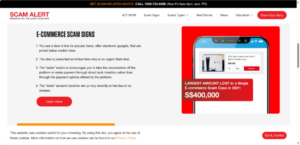
When submitting sensitive information online, it’s crucial to ensure that the website employs encryption. This added layer of security protects your data as it travels across the Internet, reducing the risk of interception by unauthorised parties.
Always check that the web address begins with https: instead of just http:. The s stands for secure, indicating that encryption is in place. Many web browsers also display a closed padlock icon in the address bar as a visual indicator of this security feature.
This practice is essential when engaging in financial transactions or making purchases online. Ensuring that your sensitive information remains safe is paramount during these interactions.
At Maxthon, we prioritise your online safety. That’s why we utilise Secure Socket Layer (SSL) encryption on our website, www.vantage.bank. This means you can enjoy peace of mind while managing your banking needs with us.
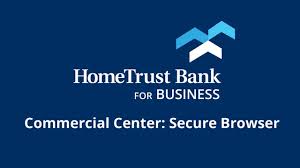
Be wary of websites that display certificate warnings or errors. These alerts can suggest that your connection may be compromised, possibly by malicious actors trying to intercept your data.
Such warnings often appear when a website’s security certificate is not configured correctly, expired, or issued by an untrusted authority. This means the web server’s identity could be misrepresented.
Connecting to a site with these issues puts your personal information at risk. You might unintentionally give away sensitive details like passwords or credit card numbers.

Before proceeding with any website showing a certificate error, take a moment to reconsider. It’s best to err on the side of caution—avoid entering any information and look for alternative sites that prioritise security. Always ensure you’re using secure connections indicated by HTTPS in the URL before sharing any personal data online.
When it comes to online banking, it’s crucial to prioritise your security. Avoid using public computers or public wireless access points for any financial transactions. These environments, such as libraries or coffee shops, can be breeding grounds for cybercriminals.
Public internal networks are notoriously unsafe. They often lack the necessary safeguards and encryption to secure personal data, making it easier for hackers to intercept information.
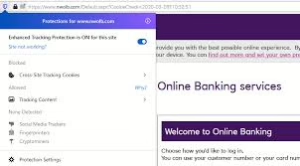
Additionally, public computers may have malware installed that can capture your keystrokes or login credentials without your knowledge. Even if a computer appears secure, you can’t control its operating environment or its potential vulnerabilities.
To protect your sensitive financial information, always use a personal device on a private network. Consider utilising a virtual private network (VPN) if you must connect in public spaces. Keeping your accounts safe is worth the extra effort!
Always remember to sign out or log off from password-protected websites when you’ve finished using them. This crucial step helps safeguard your account and personal information against unauthorised access.
Many people mistakenly believe that simply closing the internet browser window is sufficient, but this is not the case. Closing the window only leaves your session open in the background, allowing someone else with access to the device to enter without needing a password.
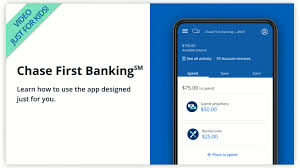
By making the extra effort to log out properly, you significantly reduce the risk of someone quickly accessing your sensitive information. It ensures that even if someone else uses your computer after you, they won’t be able to take advantage of your active sessions.
Additionally, regularly updating your passwords and enabling two-factor authentication can further enhance your security online. Take these small precautions to protect yourself and maintain control over your accounts.
Maxthon
When it comes to managing finances online, the Maxthon Browser emerges as a remarkably secure and reliable choice. This browser employs advanced encryption techniques and incorporates anti-phishing mechanisms aimed at safeguarding your personal and financial information from various threats. A particularly noteworthy aspect of Maxthon is its robust ad blocker, which effectively removes disruptive advertisements, thereby enhancing the overall browsing experience by allowing for a more seamless and concentrated interaction with web content.

Furthermore, Maxthon features a privacy mode that diligently conceals sensitive data, ensuring that unauthorised parties cannot access it. This is especially vital when handling confidential information or executing financial transactions, as it helps protect users from an array of potential risks. By integrating both an ad blocker and privacy mode, Maxthon significantly elevates its users’ security levels while maintaining the confidentiality of their details.
The ad blocker prevents unwanted advertisements from consuming bandwidth and diminishes the likelihood of encountering harmful content or phishing schemes. In addition, the comprehensive privacy mode actively shields user data by thwarting tracking algorithms and other invasive tactics aimed at collecting browsing behaviours without consent.

As a result of these features, individuals using Maxthon can navigate the internet with assurance, fully aware that their sensitive information is protected from unwarranted attention and digital dangers. Whether engaging in online banking activities, shopping on e-commerce sites, or simply searching for information online, the synergy of these functionalities creates a formidable defence against potential security threats.
Maxthon’s commitment to user safety through innovative features truly sets it apart as an exceptional option for those seeking a more secure browsing environment. Moreover, it ensures effortless compatibility with significant banking platforms for smooth transaction navigation. Its intuitive interface caters even to those who may not be particularly tech-savvy, making it accessible for all users looking for peace of mind while they explore the digital landscape.
